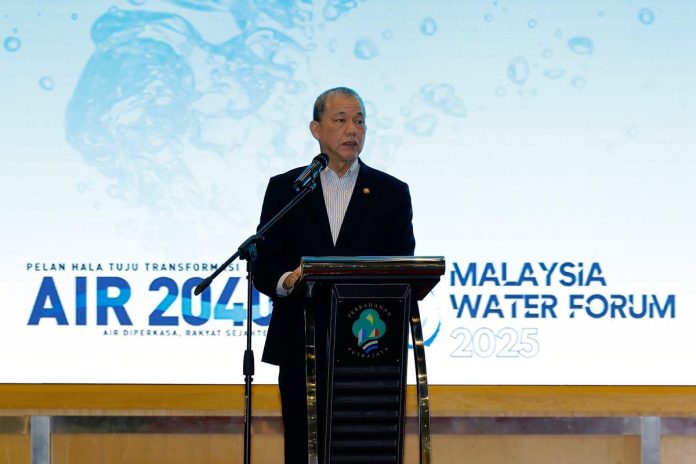PUTRAJAYA: Malaysia’s ability to support its fast-growing digital economy including the rapid expansion of water-intensive data centres hinges on strengthening the country’s water infrastructure and implementing long-term, integrated water resource planning, says Deputy Prime Minister and Energy Transition and Water Transformation Minister Datuk Seri Fadillah Yusof.
“Water is now considered the new oil. It’s a strategic resource,” he said, stressing the need for a stable and sufficient water supply not only for the public but also to attract high-impact investments like data centres. These facilities rely heavily on water to cool their systems, and demand is expected to rise as global firms increasingly choose Malaysia as a regional hub.
Fadillah warned that growing pressure from climate change and industrial demand could strain existing water infrastructure if a coordinated approach is not adopted.
“This situation places added pressure on water systems, which are not yet fully equipped to handle extreme and unpredictable weather events. Without a comprehensive and integrated approach, the risk of clean water supply disruptions will continue to rise, ultimately affecting public well-being and national development,” he said at the Malaysia Water Forum 2025 today.
He outlined three key approaches to accelerate Integrated Water Resource Management (IWRM): comprehensive, inclusive, and evidence-based.
A comprehensive approach means managing all aspects of water—from supply and quality to irrigation, flooding, and ecosystem conservation—holistically. Inclusivity involves participation from all stakeholders: government, private sector, academia, civil society, and grassroots communities.
He cited the 2025 National-level World Water Day celebration as an example of inclusive advocacy that brought together students, religious leaders, civil servants and industry players on a shared platform.
The evidence-based approach, he added, requires decisions and programmes to be guided by scientific data, impact assessments, and clear performance indicators.
While Malaysia has made strides with policies such as the National Water Resources Policy 2012 and the National Water Policy 2024, Fadillah acknowledged persistent gaps in implementation.
He pointed to fragmented agency roles, limited enforcement capacity, underfunded infrastructure, and a general lack of public awareness and technical expertise as barriers to meaningful reform.
Among key past efforts, he highlighted the formation of the Malaysian Water Partnership (MyWP) in 1993 to promote stakeholder collaboration, and the establishment of the Lembaga Urus Air Selangor (LUAS) in 1999 as a model for state-level water governance.
Malaysia’s commitment also extends to the global level, with Fadillah reaffirming the country’s support for the United Nations’ Sustainable Development Goals (SDG), especially SDG 6 on clean water access and SDG 17 on cross-sector partnerships.
“More than two billion people globally still lack access to clean and safe water,” he said, underlining the urgency of building a resilient governance model that balances economic growth with environmental sustainability and public welfare.








